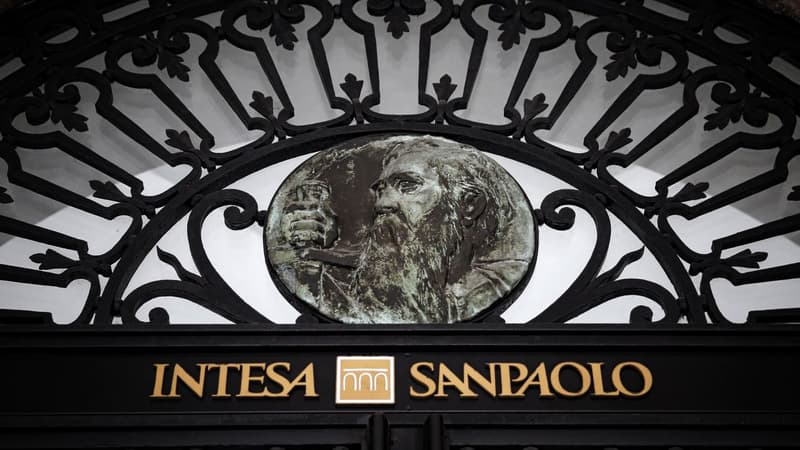The main Italian bank, Intesa Sanpaolo, announced on Wednesday its intention to set aside 2.07 billion euros to reinforce its reserves instead of paying the 40% tax on banks’ “excess profits” introduced by the Meloni government. Intesa Sanpaolo thus follows the example of its competitor UniCredit, number two in the sector, which indicated on Tuesday that it would increase its reserves by 1.1 billion euros to avoid paying this tax.
Prime Minister Giorgia Meloni watered down her controversial fiscal plan announced in early August after coming under vehement criticism, particularly from the European Central Bank (ECB) and the conservative Forza Italia party, a member of her coalition. In fact, banks will be able to choose between paying the tax or increasing their non-distributable reserves (reserves that cannot be paid in the form of dividends) by an amount equivalent to two and a half times the tax.
A tax of 828 million euros
Intesa Sanpaolo would have had to pay a tax of 828 million euros, calculated on the basis of the interest margin that skyrocketed after the rate increases decided by the ECB, as happened with other banks.
The head of Intesa Sanpaolo, Carlo Messina, was the only Italian banker who welcomed last May the project of a possible tax on banking profits, hoping that its income would be allocated to “measures in favor of the most needy people.” To mark the occasion, he announced on Wednesday that his bank planned to allocate €1.5 billion over the period 2023-2027 to initiatives aimed at “fighting inequalities and promoting financial, social, educational and cultural inclusion.”
Source: BFM TV


